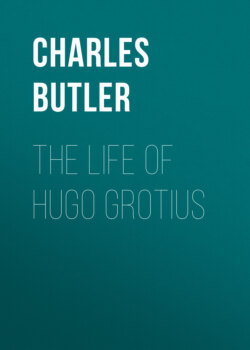Читать книгу The Life of Hugo Grotius - Charles Butler - Страница 12
На сайте Литреса книга снята с продажи.
I. 3.
ОглавлениеTable of Contents
Decline of Literature under the Descendants of Charlemagne.
800–911
I. 3. Decline of Literature under the Descendants of Charlemagne.
That literature began to decline immediately after the decease of Charlemagne, in every part of his extensive dominions, and that its decline was principally owing to the wars among his descendants, which devastated every portion of his empire, seems to be universally acknowledged; yet there are strong grounds for contending that it was not so great as generally represented. Abbé le Beuf,[003] in an excellent dissertation on the state of the sciences in the Gauls during the period which elapsed between the death of Charlemagne and the reign of Robert, king of France, attempts to prove the contrary; and the preliminary discourses of the authors of "l'Histoire Literaire de la France," on the state of learning during the ninth and tenth centuries, strongly confirm the abbé's representations. It is surprising how many works were written during these dark, and, as they are too harshly called, ignorant ages. It is more to be wondered, that while so much was written, so little was written well. The classical works of antiquity were not unknown in those times; the Latin Vulgate translation of the Old and New Testament was daily read by the clergy, and heard by the people. Now, although the language of the Vulgate be not classical, it is not destitute of elegance, and it possesses throughout the exquisite charms of clearness and simplicity. It is surprising that these circumstances did not lead the writers to a better style. They had no such effect; the general style of the time was hard, inflated and obscure. It should, however, be observed, that Simonde de Sismondi, as he is translated by Mr. Roscoe, justly observes, that "during the reign of Charlemagne, and during the four centuries which immediately preceded it, there appeared, both in France and Italy, some judicious historians, whose style possesses considerable vivacity, and who gave animated pictures of their times; some subtle philosophers, who astonished their contemporaries, rather by the fineness of their speculations than by the justness of their reasoning; some learned theologians, and some poets. The names of Paul Warnefrid, of Alcuin, of Luitprand, and Eginhard, are even yet universally respected. They all, however, wrote in Latin. They had all of them, by the strength of their intellect, and the happy circumstances in which they were placed, learned to appreciate the beauty of the models which antiquity had left them. They breathed the spirit of a former age, as they had adopted its language: we do not find them representatives of their contemporaries: it is impossible to recognize in their style the times in which they lived; it only betrays the relative industry and felicity with which they imitated the language and thoughts of a former age. They were the last monuments of civilized antiquity, the last of a noble race, which, after a long period of degeneracy, became extinct in them."
